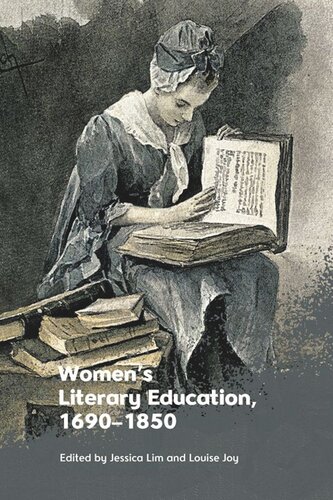

Most ebook files are in PDF format, so you can easily read them using various software such as Foxit Reader or directly on the Google Chrome browser.
Some ebook files are released by publishers in other formats such as .awz, .mobi, .epub, .fb2, etc. You may need to install specific software to read these formats on mobile/PC, such as Calibre.
Please read the tutorial at this link: https://ebookbell.com/faq
We offer FREE conversion to the popular formats you request; however, this may take some time. Therefore, right after payment, please email us, and we will try to provide the service as quickly as possible.
For some exceptional file formats or broken links (if any), please refrain from opening any disputes. Instead, email us first, and we will try to assist within a maximum of 6 hours.
EbookBell Team

4.1
40 reviewsThis volume brings together leading critical voices from a range of disciplines to examine the complex and profoundly significant ways in which female literary artists interrogated and advanced educational philosophy and practice. The volume recreates the plurality and non-linearity of the conversations and forms of literary expression that took place in and through this body of educational writing. Literature and education in the long eighteenth century share certain perceived aims: the transmission of knowledge, strengthening of understanding, acculturation, and sometimes empowerment. They also share structural forms: lessons; conversations; letters; dramatizations; confessions; narratives; imitations; sometimes fantasies. In the long eighteenth century, authors of literary texts were often authors of educational treatises who saw their activities in both spheres as interrelated. As such, the parties of teacher and pupil, author and reader frequently overlap. This book provides a historically sensitive understanding of the fraught relations between these parties, drawing attention to the period’s debates about authority and freedom as they relate to matters of gender, race, religion, age, and class. This project provides a nuanced understanding of women’s literary contributions to the period’s strands of educational thought, enabling us to better understand the many and complicated ways in which authors and readers of the period envisaged that literary texts might fulfil, fail, or refuse to fulfil, educational functions.